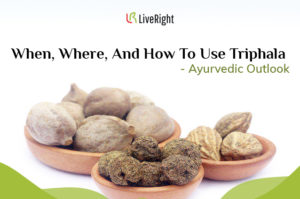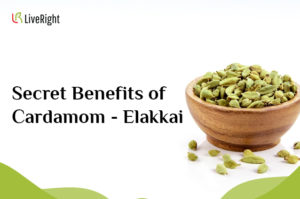Last updated on August 21, 2024 by Dr. Subashri Thanigaivel
Nowadays, one in five women is affected with PCOS. Moreover, this syndrome is becoming a common trait in the modern generation.
In this blog, let’s dig into the Ayurvedic solution for the FAQs of patients suffering from PCOS.
What does PCOS do to a woman?
A normal woman with a regular mindset is different from a woman affected by PCOS. Their moods are unpredictable and they tend to have “irregular mood swings”. When suffering from PCOS, both the happening and not happening of menstruation can create stress for the individual.
The concern for PCOS differs among women of different age groups. For example;
Women in the age group 13 to 25 – look deep into the cosmetic problems developed due to PCOS (hair loss, acne, hirsutism, skin darkening or uneven skin tone, thinning of hair, male pattern baldness, etc.)
Women in the age group 20 to 40 – their major suffering would be related to infertility issues.
So, PCOS brings different effects on women based on age, body type, food diet they maintain, or the lifestyle they follow. These effects can sometimes be adverse too, if unanswered at the right time.
What is the main cause of PCOS?
The majority of PCOS conditions are developed due to hormonal imbalances. This hormonal imbalance is triggered by the food diet and lifestyle an individual is following. Yet the exact cause of PCOS is still a topic of research in contemporary science. But Ayurveda provides detailed information regarding this.
Metabolic disorders, intake of food which is not balanced in nutrition, untimely meals, sedentary lifestyle or excessive exercise, lack of good sleep, stress, and even suppression of diseases can lead to hormonal imbalance, affecting the menstrual cycle.
Can PCOS be caused by stress?
Stress also plays a role in causing PCOS. Ayurveda clearly explains the impact of mental factors on organs and organ systems. But it mostly causes PCOS in association with low metabolism and improper diet habits. To relieve stress, practice meditation, and pranayama. Sometimes, following your heart or doing something that interests you can even give you a way out of stress.

How will I know that I have PCOS, in general?
Let’s say that you are a healthy woman enjoying your regular periods. But some prominent signs happen in your body, they can be either internal or external changes. And if you observe these changes then immediately consult your doctor.
Recognizable external symptoms;
- Hirsutism (body hair growth)
- Hair loss
- Acne
- Darker or uneven skin tone
- Weight gain
- Black color discoloration (on the neck, armpits, or wherever skin folds are found)
Recognizable internal symptoms;
- Irregular menstrual cycle
- Mid-cycle spotting
- Reduced blood flow during menses
- Fatigue
Why are some PCOS patients obese?
PCOS condition disturbs the patient’s body metabolism. This altered metabolism disables fat metabolization leading to fat sedimentation on adipose tissues causing weight gain.

Can PCOS go away with weight loss?
If weight gain is the primary symptom of your PCOS then reducing your weight can help in reversing your condition to a normal state. But generally, this need not be the only major symptom of PCOS. Other factors like hormonal disturbances, lifestyle changes, and diet patterns are all linked together.
Does PCOS ever go away?
PCOS can be reversed, but to maintain it, the women must continue with the corrected Ayurvedic lifestyle and habits. This can help the patient not trigger her hormones to go out of balance and lead to PCOS again.
Can I get pregnant with PCOS?
It is definitely possible to get pregnant for women recovering from PCOS.
It depends on the diet, and lifestyle you follow after the diagnosis. Moreover, there is no such evidence present to prove that a PCOS woman can never get naturally pregnant. Everything falls under one roof – your diet plan and the Ayurvedic lifestyle you follow.
How long does a PCOS period last?
The following are different descriptions of menstrual irregularities described in Ayurveda, that could happen to a woman suffering from PCOS.
Anartavam – Absence of menstruation
Arthavakshayam – Insufficient blood flow
Raktapradaram – Prolonged and increased flow of menstrual blood
Udavartini – Unbearable pain during menstruation and release of clots.
Pushpaghni – No ovulation, but menstruation will take place.
The time period for a PCOS cycle can’t be determined. It differs from patient to patient based on their condition.
What does PCOS pain feel like?
Each person will experience various types of pain. This can’t be predicted without a proper diagnosis. Some might have heavy pain in their lower abdomen or some might have dull and mild pain but it prolongs for a longer period of time. There may even be times when it is painless.

At what age does PCOS start? And what are the first signs of PCOS?
Mostly, patients discover their PCOS condition during childbearing age.
The most prominent sign of PCOS that patients can measure is the irregular menstrual cycle. But the syndrome may begin even in their teens.
Does PCOS worsen with age?
Awareness and early detection is the foremost thing to successfully reversing PCOS. Once diagnosed, the woman must strictly adhere to the ayurvedic lifestyle and diet advised. In such a case, one need not worry about their age.
Is PCOS genetic?
If your mother, aunt, or any closely related female member of your family is suffering from PCOS then there are chances of you getting PCOS. Although the specific reason for genetic PCOS nor the genes responsible for this syndrome is not yet defined.
What food to intake and avoid in PCOS?
When it comes to food and diet, patients can consult their doctor before preparing their diet plan.
According to Ayurveda, milk and dairy products are to be avoided except for ghee and buttermilk.
For carbohydrates, traditional rice varieties are more beneficial than hybrid white rice. And mutton soup is recommended over broiler chickens for meat supplements. Fresh fruits are good vitamin supplements for PCOS. Intake of fruits in fresh and raw form or atleast as fresh juices.
Strictly avoid tuber vegetables like potatoes and any kind of processed/ preserved foods.
Include sesame, fenugreek, and fig (in fresh or dried form) as a part of your regular diet. Cooking food in sesame oil is a very good practice.
Can PCOS be reversed through Ayurveda?
Yes, with proper diet and lifestyle, PCOS can be reversed. This is because, Ayurveda provides customized treatment, highly specific diet plans, and lifestyle patterns for each patient based on their body constitution. PCOS under chronic conditions might even require Ayurvedic panchakarma therapies to reverse it.
Commitment and consistency is the most important thing to follow for a patient suffering from PCOS. Let it be the diet or lifestyle habits, the patient has to track those patterns regularly to reverse their abnormal condition.
According to Ayurveda, our lifestyle determines our wellness. Not only PCOS, the cause of any disease ultimately goes back to the lifestyle that is being followed. So, training ourselves with a proper Ayurvedic lifestyle can give us a happy, healthy and complete life.
Ayurveda; Leads us through wellness!




